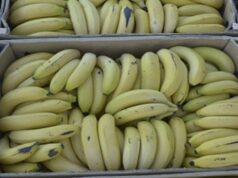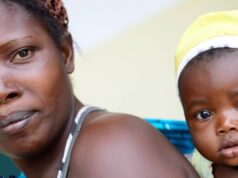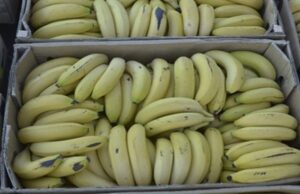
Gabriel A. Shitu, a young and bright research scholar having impressive credentials as a scholar, activist and an organizer is an epitome of new Africa. Bubbling with ideas, an unparalleled willpower and perseverance to make things happen on the ground, Shitu, as he is being fondly called by his friends and well-wishers, carry a charisma fortified with a rare vision as to what should be the future contours of growth of the African region in general and for the country he hails from – Nigeria –in particular.

Gabriel A. Shitu
Gabriel grew up as a farm boy in rural Nigeria and graduated in 2010 as the overall best student at the Agricultural College, University of Ado-Ekiti, Nigeria. In 2014, he completed his Master’s as the best student at the University of Agricultural Sciences, Raichur, India, on an Indo-Africa Fellowship. His research project in 2014, won ICAR International fellowship that enabled him to do his Doctoral Research at Indian Agricultural Research Institute (IARI), New Delhi. His research work won IPNI Scholar award in 2017 for Outstanding Research Contribution. He is the innovator of WERP-India (Women Empowerment Research Project in India), a start-up organization for empowering women.
Gabriel strongly feels that Oil discovery, which has catapulted some of the economies like Nigeria into the league of oil-rich countries did not contribute to economic growth as expected. When oil was struck in the early 1980’s, everyone thought the oil wealth could be leveraged to promote agriculture, which is the predominant occupation of over a billion Africans. But what happened was just the opposite. Oil wealth forced many economies to ignore agriculture, upsetting the food habits of the people. For instance, Nigeria used to grow Cocoa, palm oil, cassava (tapioca), maize etc. Those were the staple food of Nigerians. Now farmers are keeping land fallow and the country is importing heavily rice and wheat.
Oil has also created polarization in the economy. Some have become super rich and people who dependent on agriculture, such as marginal farmers, labors etc have migrated to cities. These unemployed are being easily drafted into crimes and other nefarious activities. “A new thinking has to sink across Africa to give importance to agriculture and that only can lead to an equitable and inclusive growth. Institutions like African Union and African Development Bank etc should give importance to agriculture. For that, they have to reorient their policies,” says Shitu, adding that oil money has aggravated corruption in the region and it can be tackled only by providing sustainable growth and employment, based on agriculture.
That does not mean that Gabriel is not against manufacturing and services. Some of the African countries have rich mineral resources, which are now exported in the raw form and strangely finished products are imported back to the region. “In the process, value addition and employment are taking place in other countries denying the continent the fruits of development. I am aghast to understand, while we export coffee and coco beans to developed countries, we import chocolates and coffee powder. Even in the case of crude oil, we mine it and send abroad for refining since we do not have enough refinery capacity,” he laments.
Young Gabriel has a take on what the hallowed organizations like AU, AFDB etc should do. “ They should encourage and incentivize agriculture like what it is being done in countries like India. They should fast track African integration rather than keeping it in abeyance till 2063. Can they keep the deadline closer, say 2025 0r even 2030?” he avers.
Gabriel has traveled across India, perhaps excepting the North Eastern States. One thing that he liked is the love of the Indian farmers for land and their willingness to experiment. Are there any takeaways for African farmers from India? “ A lot” he quips, adding that problems of the farmers in both the regions are more or less the same. Irrigation, lack of funds, sustainable development, lack of processing facilities, cold chains etc are the major handicaps.
What would he do once he submits his thesis possibly by next month or so? “ I will go back to Nigeria sooner or later. My wife is doing her Masters in Agriculture. She has one more year to go to complete her course. Till that time, I will have to find a job with an NGO or so here to support me, my wife and our twin daughters. After that I will go back to Africa and work for the region’s development,” he says.
Coming back to the question of sync between Africa and India in agriculture, Gabriel says that he was offered the seat for doctoral course by a few prestigious universities in the West. But he chose to come back to India since there is a something in Indian agriculture that is similar to Africa. “My Indian field experience will be a great advantage for pursuing my mission in Africa,” he adds.
Gabriel has a few advice for India. Chinese investments in diverse sectors like infrastructure, agriculture, manufacturing, banking, telecom services etc are growing in Africa. It is bound to go up several -fold in the coming years. “It is a wakeup call for India to enhance its presence in Africa, which is going to be a growth center of the world in the future,” he adds.






